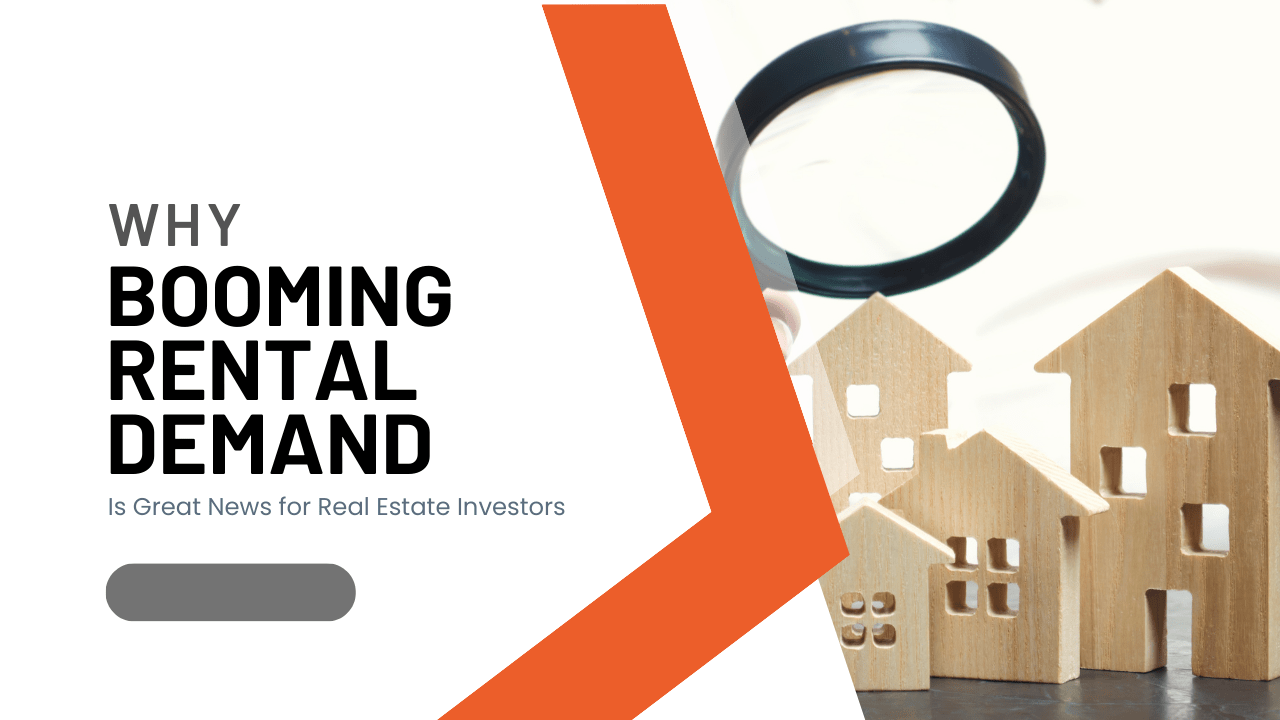
As Atlanta property management experts, we’ve been watching the market shifts in our city and across the state. We can tell you that Georgia has emerged as a highly desirable place to live in the Southeastern United States, and presents a major opportunity for real estate investment.
From the vibrant urban appeal of Atlanta to the city’s growing suburbs and neighboring towns, the state has experienced a significant uptick in rental demand. Smart investors are already enjoying the benefits that come with the growing demand.
We’re excited to talk with you about this. Whether you’re an out-of-state investor seeking to enter a high-growth market or a local investor looking to expand your portfolio, Georgia’s current rental landscape offers promising opportunities.
The Rental Boom in Georgia: What’s Driving It?
Several economic, demographic, and lifestyle trends have come together to create unprecedented demand for rental housing across Georgia. Some of the most impactful reasons we have identified include:
1. Population Growth and Migration Trends
Georgia, particularly metro Atlanta, has seen a steady increase in population, driven by both domestic migration and international immigration. According to the U.S. Census Bureau, Georgia was one of the top 10 fastest-growing states in 2023, with much of that growth concentrated in and around Atlanta. People are drawn to the region for its job opportunities, affordability (relative to coastal markets), and quality of life.
What’s especially appealing to investors is the nature of this migration. Many of the newcomers are representing new demographics, specifically Millennial tenants and Gen Z professionals. They’re still more likely to rent a home than purchase one. Additionally, retirees looking to downsize and relocate to milder climates are adding to rental demand in Georgia’s suburban and secondary markets.
2. A Thriving Job Market
Georgia’s job market, especially in the Atlanta metro, continues to outperform national averages. Atlanta is a major hub for technology, logistics, media, and healthcare, with companies like Delta Air Lines, Coca-Cola, Home Depot, and NCR Corporation anchoring the local economy. In addition to those big brands and reliable industries, we’re seeing some small businesses set up shop here and a growing number of entrepreneurs and start-ups arriving.
The region’s expanding film and television industry—bolstered by state tax incentives—has also contributed to job creation and demand for short- and long-term rental housing. As high-income jobs draw professionals from across the country, the need for upscale rental properties has grown.
3. Rising Homeownership Barriers
While homeownership remains a long-term goal for many of the people renting homes in Atlanta, it’s not the end goal for every tenant. This is due to a shifting version of the American dream. And, rising home prices, high interest rates, and tighter lending standards have made it more difficult for first-time buyers to enter the market. This shift has created a larger pool of potential renters, many of whom are financially stable but priced out of homeownership for now.
In Georgia, where property taxes remain relatively low compared to other states, investors are well-positioned to provide the rental housing that this growing tenant base needs.
Why This Is Great News for Real Estate Investors
For both new and existing real estate investors, Georgia’s growing and stable rental demand translates into several key advantages, which you may have noticed already if you’re already renting out a home in this area.
Lower Vacancy Rates
You won’t have to wait so long to rent out your property. With more people looking for places to live, landlords are experiencing significantly lower vacancy rates. In Atlanta, the average vacancy rate for multifamily properties dropped to 5.2% in early 2024, down from nearly 7% just two years prior. In some suburban areas, the rate is even lower, especially where inventory is tight. There’s a good chance you’ll find a qualified tenant to rent your home quickly.
Rental units are leasing faster, rental income is more predictable, and investors are spending less on marketing, tenant turnover, and make-ready costs.
Higher Tenant Retention
Another important trend is rising tenant retention. With limited availability of affordable housing and increasing relocation costs, more renters are choosing to renew their leases rather than move. It makes financial sense for them, and it leads to better earnings for you. According to a report from RealPage, Atlanta has one of the highest year-over-year lease renewal rates among large U.S. metros. Higher retention not only reduces vacancy risk but also lowers maintenance and administrative expenses. For property owners, this leads to stronger and more stable returns.
Rising Rents and Healthy Cash Flow
There’s also the facts around what you’re earning as a rental property owner in Georgia. Rental rates across the state have climbed steadily over the past few years, with Atlanta leading the charge. Even as the market begins to stabilize and rents begin to settle, most owners have noticed that rents remain robust, especially in neighborhoods with high demand and limited supply.
For example, average rents for a two-bedroom apartment in Midtown Atlanta have risen every year, and continue to be higher than ever. In the suburbs like Alpharetta, Decatur, and Marietta, rents have seen similar increases, often with less competition from large institutional landlords. This upward pressure on rents, combined with low vacancy and stable tenants, enhances cash flow and ROI for investors.
Atlanta and Beyond: Where the Opportunities Are
The metro Atlanta area continues to be the epicenter of investment activity, but nearby cities and suburban markets are also seeing strong performance. Here’s a look at a few hotspots that investors will want to explore when they’re thinking about leveraging the rental demand in Georgia.
Atlanta Proper
Neighborhoods like West Midtown, East Atlanta, Grant Park, and Reynoldstown are attracting young professionals, creative tenants, and remote tech workers. Investors targeting single-family rentals or small multifamily properties here benefit from walkable neighborhoods, access to transit, and strong rental demand.
Decatur
Just east of Atlanta, Decatur boasts excellent schools, a vibrant downtown, and a progressive community atmosphere. It’s highly popular among families and professionals, making it ideal for higher-end rentals or long-term tenants.
Marietta and Cobb County
Thanks to the Braves’ relocation to Truist Park and subsequent development around The Battery, Cobb County has become a magnet for entertainment, dining, and commerce. It’s also well-connected to Atlanta, making it attractive for commuters.
Gwinnett and Forsyth Counties
These fast-growing suburban counties have seen strong population growth, excellent school systems, and increasing diversity. They’re particularly well-suited for build-to-rent developments and townhome communities.
Savannah and Augusta
While Atlanta dominates the real estate headlines for Georgia, we are talking to a number of investors who are not overlooking Georgia’s other urban centers. Savannah’s tourism-driven economy and Augusta’s health and military sectors are fueling localized demand for both short-term and long-term rentals.
Strategies for Maximizing Returns
 With strong fundamentals in place, real estate investors can take several steps to maximize returns in Georgia’s rental market. For example, it’s especially smart right now to focus on adding value to your existing properties. Given the demand for quality rental housing, properties that can be improved through renovations, upgrades, or better management are prime opportunities. Even modest enhancements—like updated kitchens, smart home features, or curb appeal improvements—can command higher rents.
With strong fundamentals in place, real estate investors can take several steps to maximize returns in Georgia’s rental market. For example, it’s especially smart right now to focus on adding value to your existing properties. Given the demand for quality rental housing, properties that can be improved through renovations, upgrades, or better management are prime opportunities. Even modest enhancements—like updated kitchens, smart home features, or curb appeal improvements—can command higher rents.
There’s also been an increase in build-to-rent investments across Georgia. This is especially impactful in suburban areas with land availability and growing populations. These communities offer the appeal of single-family living with the benefits of professional management, and they tend to attract stable tenants with longer lease terms.
Whatever your investment goals happen to be, make sure you’re embracing tech-driven property management in Atlanta and throughout Georgia. Automation tools for tenant screening, lease signing, maintenance requests, and rent collection can improve efficiency, reduce overhead, and enhance the tenant experience. Investors who leverage technology can scale more easily and manage properties from out of state. Work with a property management team that has already made these investments to save yourself some money and increase both efficiency and effectiveness.
Georgia's booming rental demand presents a timely and compelling opportunity for real estate investors. Whether you're buying your first duplex in East Point or developing a BTR community in Forsyth County, the conditions are highly favorable: low vacancies, strong tenant retention, growing rents, and a diversified economy.
Existing investors are already reaping the benefits of this environment. They’re talking to us about fewer turnovers, steadier cash flow, and rising property values. And yet, the market isn’t saturated. There’s still ample room for new players, especially those who understand the dynamics of Georgia’s evolving housing landscape.
Success in Georgia depends on due diligence, smart financing, and strong property management.
We’d be happy to help you identify the right market and get started on what could be a lucrative and rewarding investment journey. Contact us at Property Services of Atlanta, where we can talk about strategies around investing and help you lease, manage, and maintain your properties to the point that you’re earning consistent cash flow and growing long-term ROI.

 Owner Portal
Owner Portal




